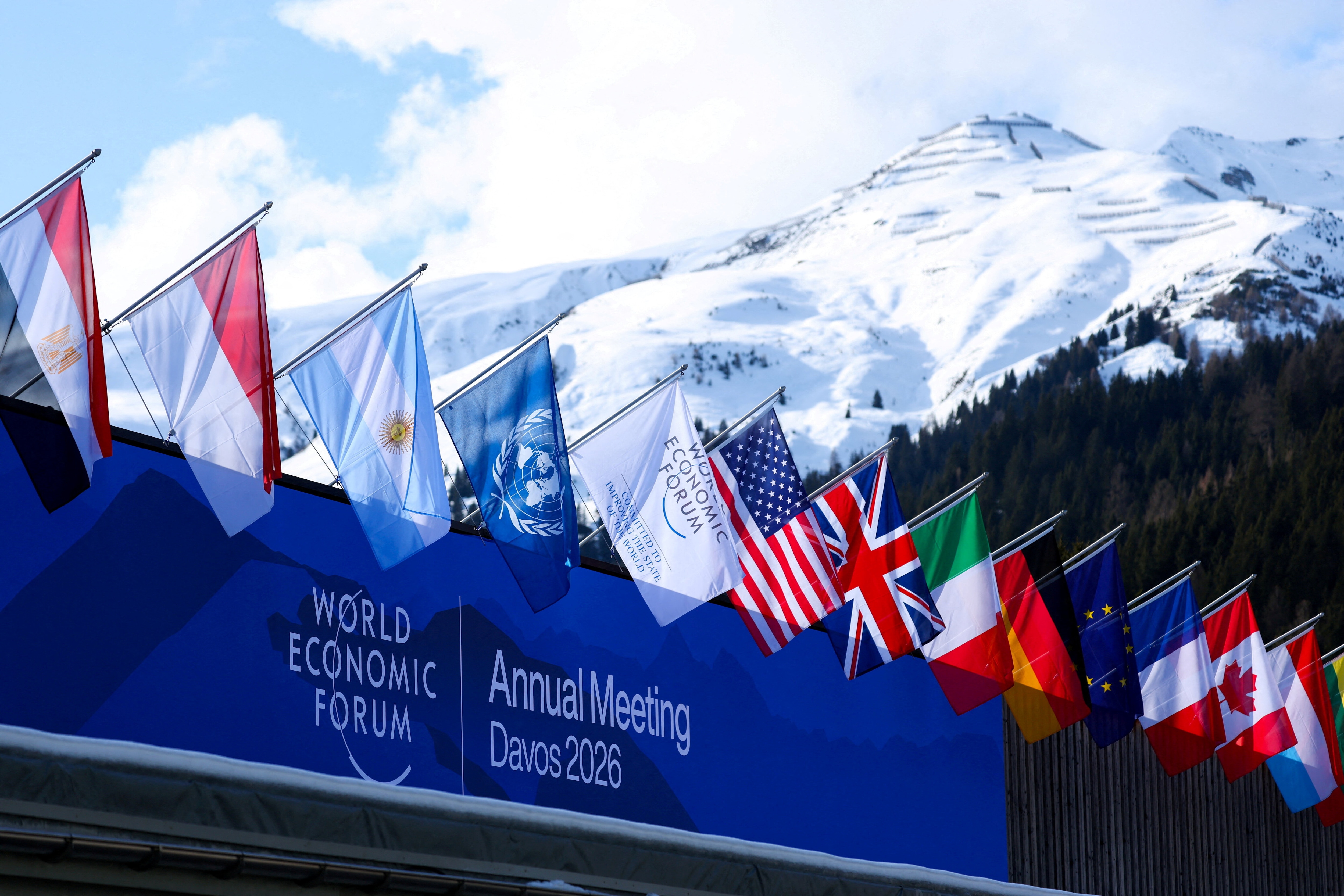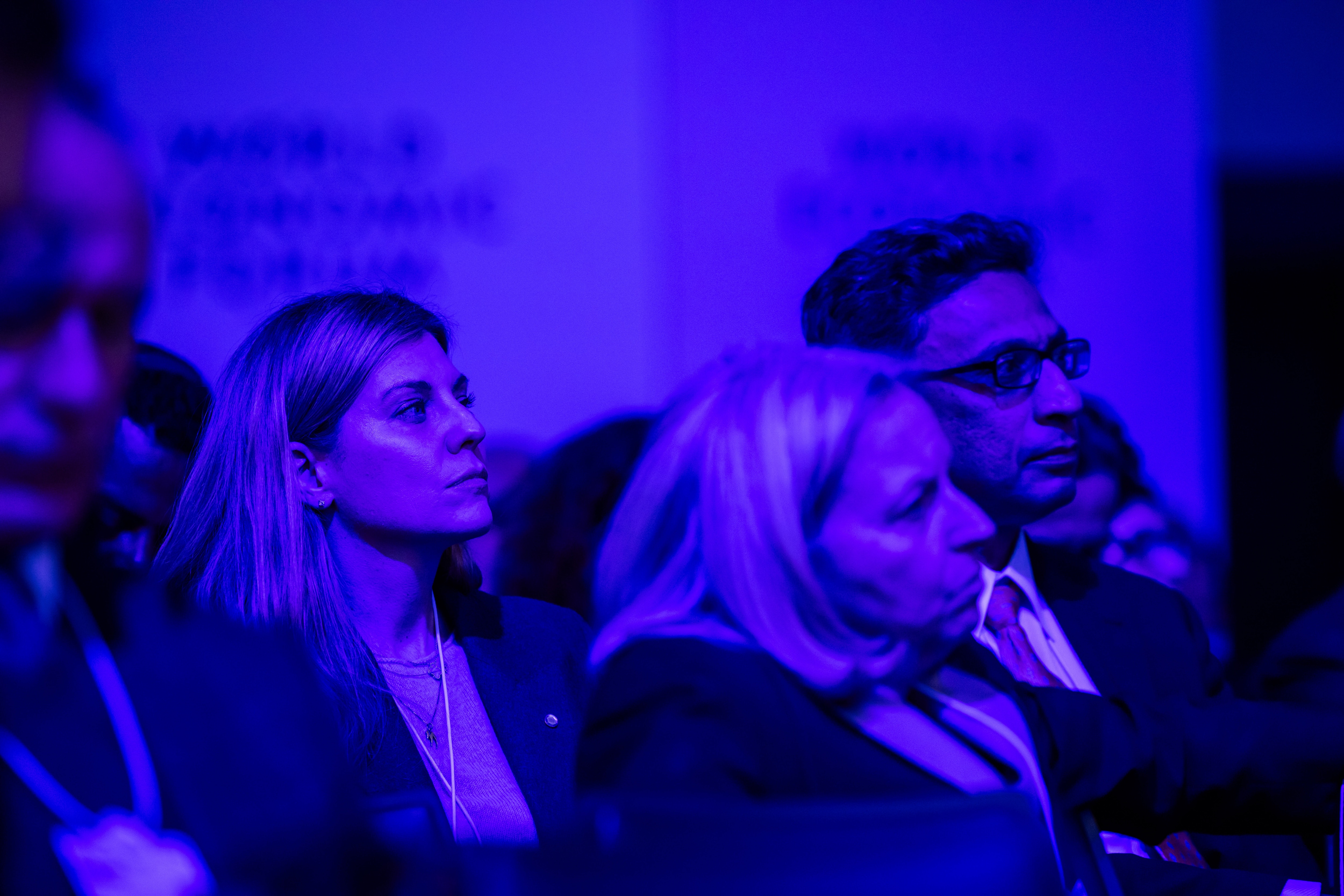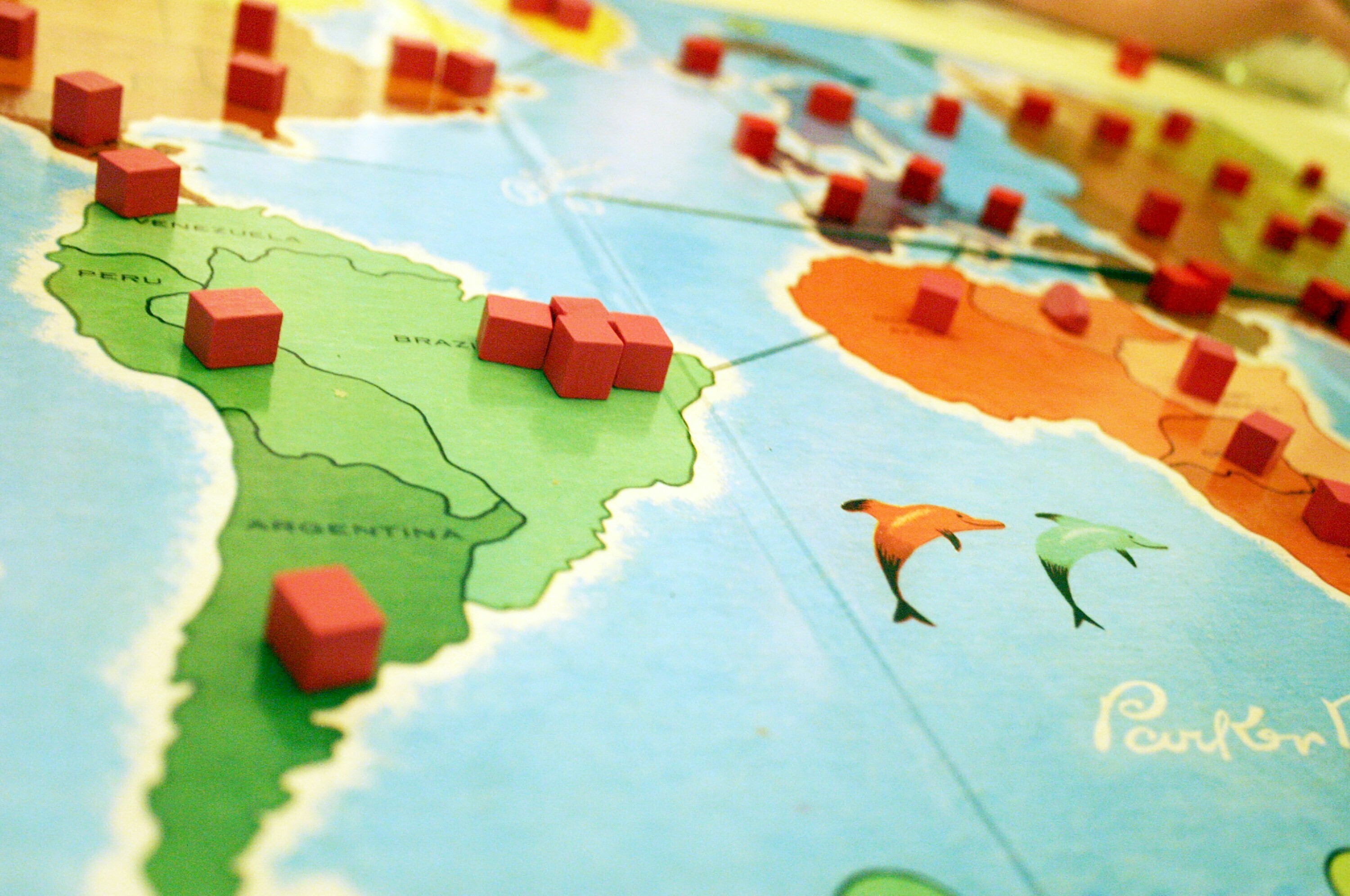UNGA 2025: What is the UN General Assembly and what happens at the meeting?

The United Nations emblem is seen in the UN General Assembly. Image: REUTERS/Lucas Jackson
Listen to the article
This article has been updated.
- The United Nations General Assembly High-Level Week (UNGA) takes place in New York every September.
- Key discussion topics at this 80th session include advancing gender equality, AI governance, and NCDs and mental health. A climate summit will also be held.
- Alongside the assembly, the World Economic Forum will hold its Sustainable Development Impact Meetings, convening leaders from politics, business and civil society.
Every September, world leaders from United Nations (UN) member states gather at the organization's headquarters in New York to debate the most important global issues.
This year's meeting marks a special milestone: The 80th edition of the United Nations General Assembly (UNGA 80). Conversations this year emerge in a world at a crossroads. At 80, the UN is facing a period of flux, with the future of multilateral cooperation remaining uncertain. Meanwhile, the global economy and its growth drivers are being reshaped by shifting geopolitical dynamics, rapid technological advancement and an ever warming planet.
Achieving sustainable development depends more than ever on inclusive collaboration - bringing together governments, the private sector, international organizations and civil society as essential partners.
As talks kick off this month, here's what you need to know about the UN General Assembly.
What is the UN General Assembly?
The UN General Assembly, the main policy-making body of the UN, was created under Chapter IV of the Charter of the United Nations, signed in San Francisco on 26 June, 1945.
The Charter outlines its key functions, including “promoting international cooperation in the economic, social, cultural, educational and health fields, and assisting in the realization of human rights and fundamental freedoms for all without distinction as to race, sex, language or religion”.
The assembly meets from September to December each year and then again from January to August, if required. Representatives debate and make decisions on issues such as peace and security and the admittance of new members.
As outlined in the charter, the assembly may approve the UN budget, elect non-permanent members of the UN Security Council, and appoint the secretary-general, among other things.
UN General Assembly: This year's theme, dates
The 80th edition of the United Nations General Assembly (UNGA 80) High-Level Week opens on Monday 22 September, with the first day of the General Debate on Tuesday 23 September.
The theme this year is: 'Better together: 80 years and more for peace, development and human rights', highlighting the urgency of delivering on the Sustainable Development Goals (SDGs) and reinvigorating global cooperation.
Alongside this, the World Economic Forum holds its annual Sustainable Development Impact Meetings in New York, which bring together leaders from business, politics and civil society for solution-orientated dialogues on the globe's most pressing challenges.
What happens during the UNGA and General Debate?
The UN General Assembly opens with a minute of prayer or meditation and then the formal election of the President.
This year, the president of the 80th session of the General Assembly is former German foreign minister Annalena Baerbock, the first woman from the Western European group to hold the post and one of the youngest presidents, at 44.
In her acceptance speech in June 2025, she called for a UN “that embraces everyone".
"I see the diversity of the General Assembly as our strength. This is the place where all nations come together and where every country has a seat and a voice.”
The main event of the UNGA session, and the one that generates the most headlines, is the General Debate. This year, it is scheduled to begin on Tuesday, September 23, with world leaders each taking turns to speak for around 20 minutes.
The General Assembly votes on resolutions brought forward by member countries, which can be referred to the Security Council to be made binding.
One of the General Assembly’s earliest achievements was to agree on the Universal Declaration of Human Rights in 1948, outlining global standards for human rights.
A key moment for the UN General Assembly was in September 2015, when the Assembly agreed on a set of 17 Sustainable Development Goals (SDGs) to be achieved by 2030. All countries pledged to work together to eradicate poverty and hunger, protect the planet, foster peace and ensure gender equality.
While just a third of the SDGs are on track, they represent a sober assessment of global progress, highlighting a mix of urgent concerns as well as some key successes. With only five years left on the clock, however, it has never been more vital to build trust and collaborate on solutions.
In 2024, world leaders agreed on a landmark Pact for the Future, consisting of 56 Actions designed to "turbocharge" the SDGs, but in particular to speed progress on issues around peace and security, global governance, climate change, digital cooperation, human rights, gender, youth and future generations.
UNGA 2025: What is in the spotlight?
The General Assembly High-level Week, from 22 to 30 September, will start with an hour-long meeting to mark the 80th anniversary of the establishment of the UN. During this session, officials and heads of state and government will reflect on the achievements over the past eight decades and consider "the path ahead for a more inclusive and responsive multilateral system".
Later that morning, a High-level Meeting on the 30th Anniversary of the Fourth World Conference on Women will convene under the theme “Recommitting to, resourcing and accelerating the implementation of the Beijing Declaration and Platform for Action to achieve gender equality and the empowerment of women and girls.” It will reflect on progress since the 1995 conference in Beijing and highlight achievements as well as identifying gaps in advancing gender equality worldwide.
On 24 September, a Climate Summit will take place, convened by the UN Secretary-General, António Guterres, where world leaders can present their new national climate action plans. Ahead of COP30 in Brazil, the Summit will focus on demonstrating commitment and accelerating action towards achieving the Paris Agreement target of limiting the global temperature increase to 1.5°C above pre-industrial levels.
That day will also see the first Biennial Summit First Biennial Summit for a Sustainable, Inclusive and Resilient Global Economy: implementing commitments on financing development, which was mandated by last year’s Pact for the Future. It will include a stocktake of commitments to financing the SDGs, and strengthen multilateral collaboration to implement the 2030 Agenda.
The Fourth High-level Meeting of the UN General Assembly on the Prevention and Control of NCDs and the Promotion of Mental Health and Wellbeing will be held on 25 September. Progress towards achieving SDG target 3.4 by 2030 and reducing premature mortality from NCDs by one third through prevention and treatment and the promotion of mental health and well-being are off track. The meeting will result in an "ambitious and achievable" Political Declaration, the UN says.
There will also be a High-level Meeting to Launch the Global Dialogue on AI Governance on 25 September, that will bring together Member States, UN specialized agencies and diverse stakeholders to explore what is needed for inclusive and accountable AI governance.
Don't miss any update on this topic
Create a free account and access your personalized content collection with our latest publications and analyses.
License and Republishing
World Economic Forum articles may be republished in accordance with the Creative Commons Attribution-NonCommercial-NoDerivatives 4.0 International Public License, and in accordance with our Terms of Use.
The views expressed in this article are those of the author alone and not the World Economic Forum.
Stay up to date:
Sustainable Development
Related topics:
Forum Stories newsletter
Bringing you weekly curated insights and analysis on the global issues that matter.
More on Global CooperationSee all
Yousif Yahya and Abir Ibrahim
January 29, 2026







